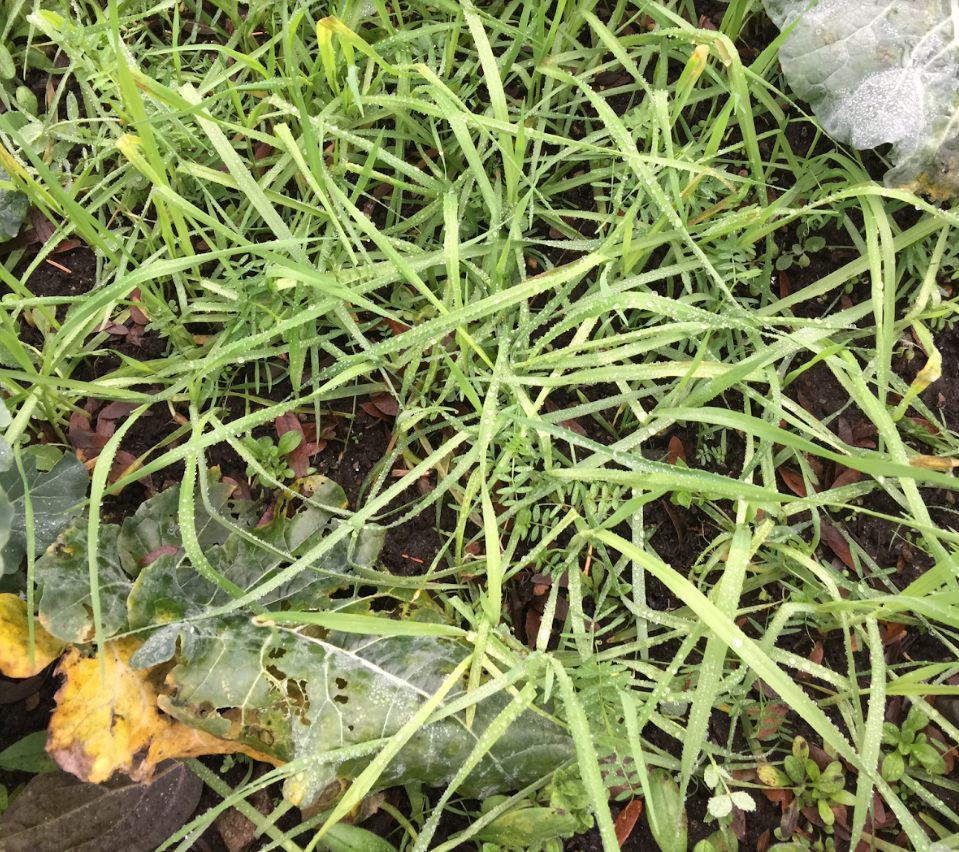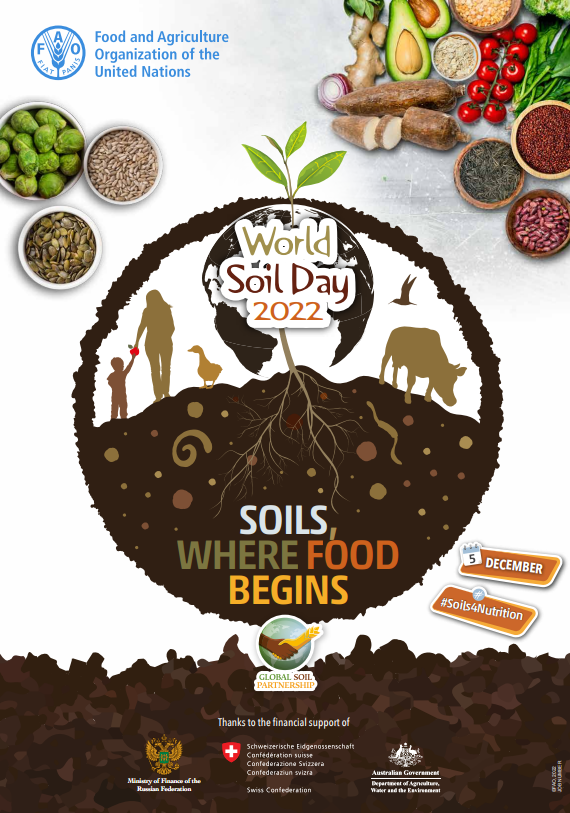Written by Teresa Porter, Farmland Ecosystem Services Project Coordinator
World Soil Day is celebrated every year on December 5th to highlight the importance of healthy soils. This year’s theme is ‘Soil: Where Food Begins’. Given that roughly 95% of our food comes from the soil, healthy soils are integral to our food systems!
Plants obtain 15 essential nutrients they need to grow from soils. Their origins can be mineral (from weathered rock) or organic (from decaying plant and animal matter). Either way, diverse soil biota, including bacteria and fungi, play a crucial role in making these nutrients available to plants. A teaspoon of healthy soil contains more living organisms than there are people on earth!
 Photo provided by Art Bomke
Photo provided by Art Bomke
Good soil structure provides a balance of air and water in the soil. Individual soil particles come together to form aggregates, or small building blocks, that give soil structure and leave spaces in the soil. Soil aggregates provide habitat for diverse soil organisms, allow for soil drainage, give soils the ability to store water, and make it easier for roots to grow through the soil.
Organic matter and organic and chemical fertilizers can be added to soils to maintain their fertility, or their ability to provide plants with the nutrients they need to grow. However, overfertilization can lead to leaching of excess nutrients, such as nitrogen and phosphorus, into groundwater and streams, and can lead to eutrophication and aquatic “dead zones”. Excess nitrogen can also be transformed to nitrous oxide, a potent greenhouse gas. Soil nutrient management has impacts beyond the farm!
At SPEC, we support local farmers in their role as soil stewards through our Famland Ecosystem Services program. We provide soil testing support for farmers and organize a yearly seminar for farmers which often include workshops on sustainable soil management. Through our cover crop program, we provide cover crop seed for farmers to protect their soils over the winter. Cover crops are plants that are grown not for harvest, but for ecological benefits. Cover crops grown over the winter provide a continuous plant cover, which supports soil organisms (that rely on plants to stay alive) and protects the soil from heavy rains that break up soil structure and cause soil erosion (loss of soil). Cover crops also take up excess nutrients at the end of the season, preventing them from leaching into waterways. Legume plants included in the cover crop mix form symbiotic relationships with bacteria that pull nitrogen from the atmosphere, meaning that growing cover crops can also boost soil fertility!
We invite you to take a moment today to reflect on the importance of soil in your life, as the origin of food, and as ecosystems that provide habitat for a diversity of life. To learn more about soils and World Soil Day, visit the UN FAO World Soil Day website.
